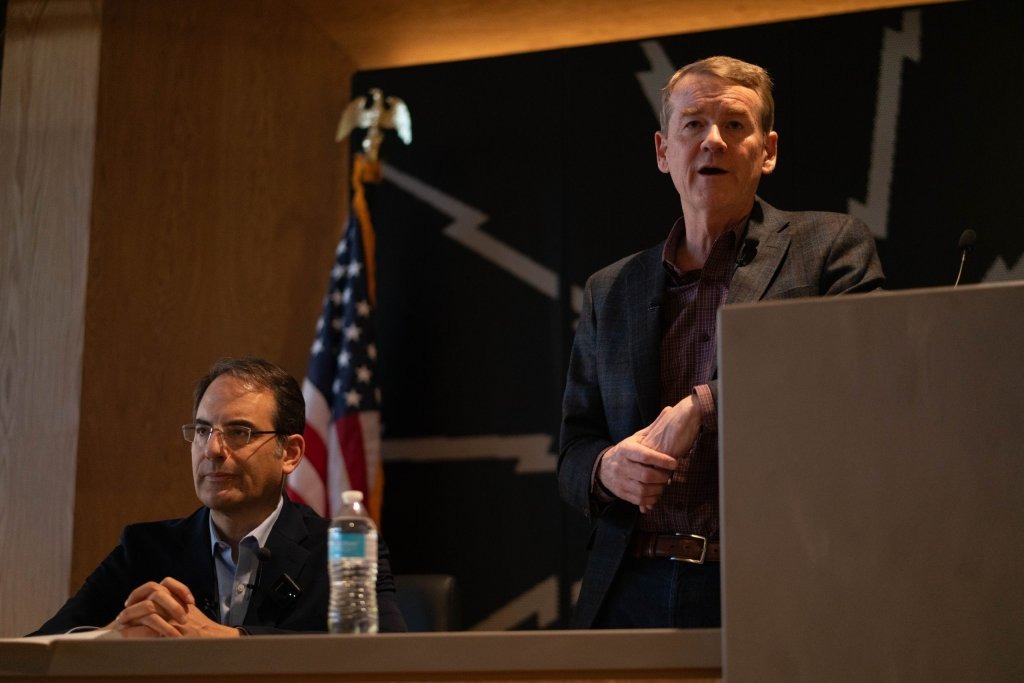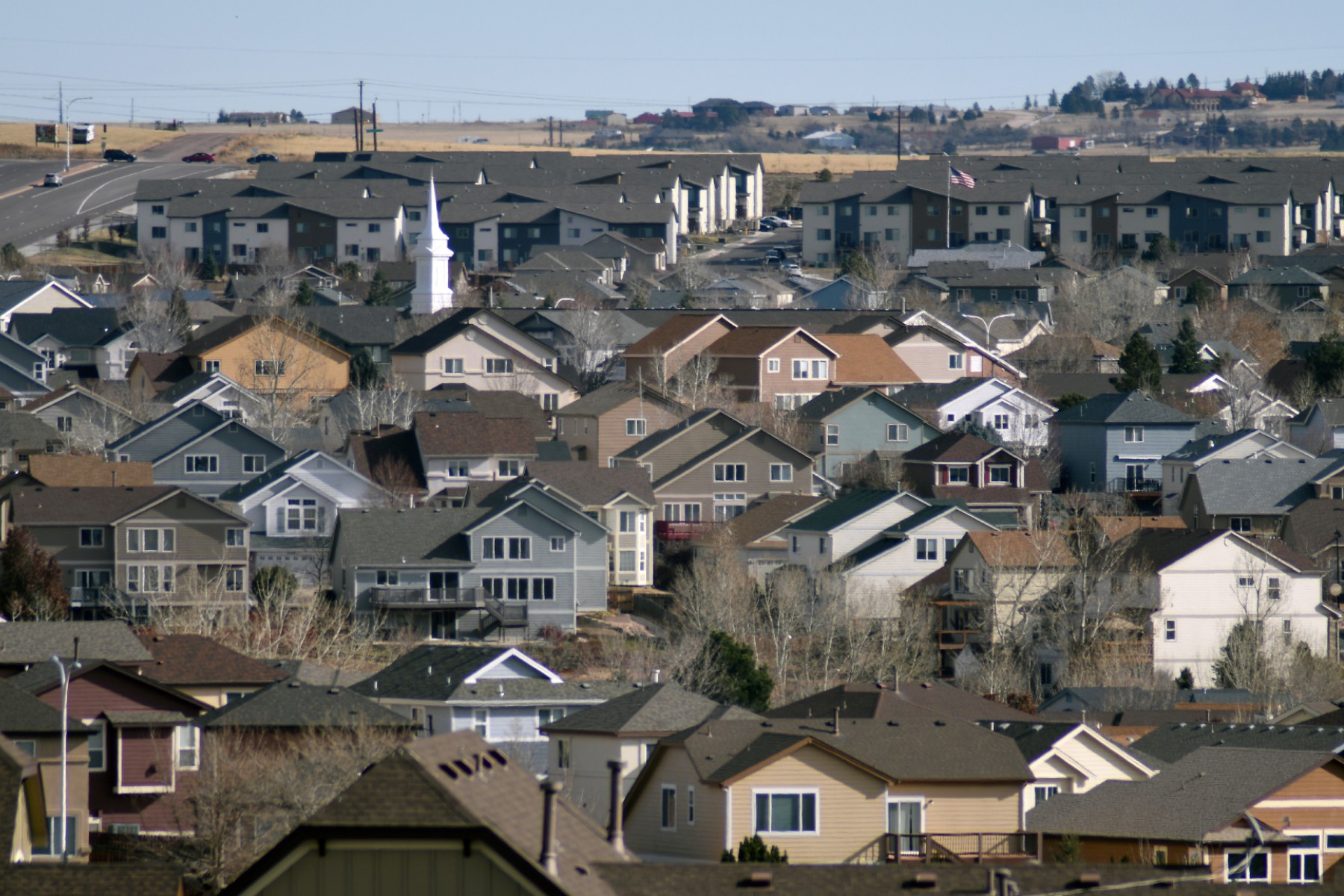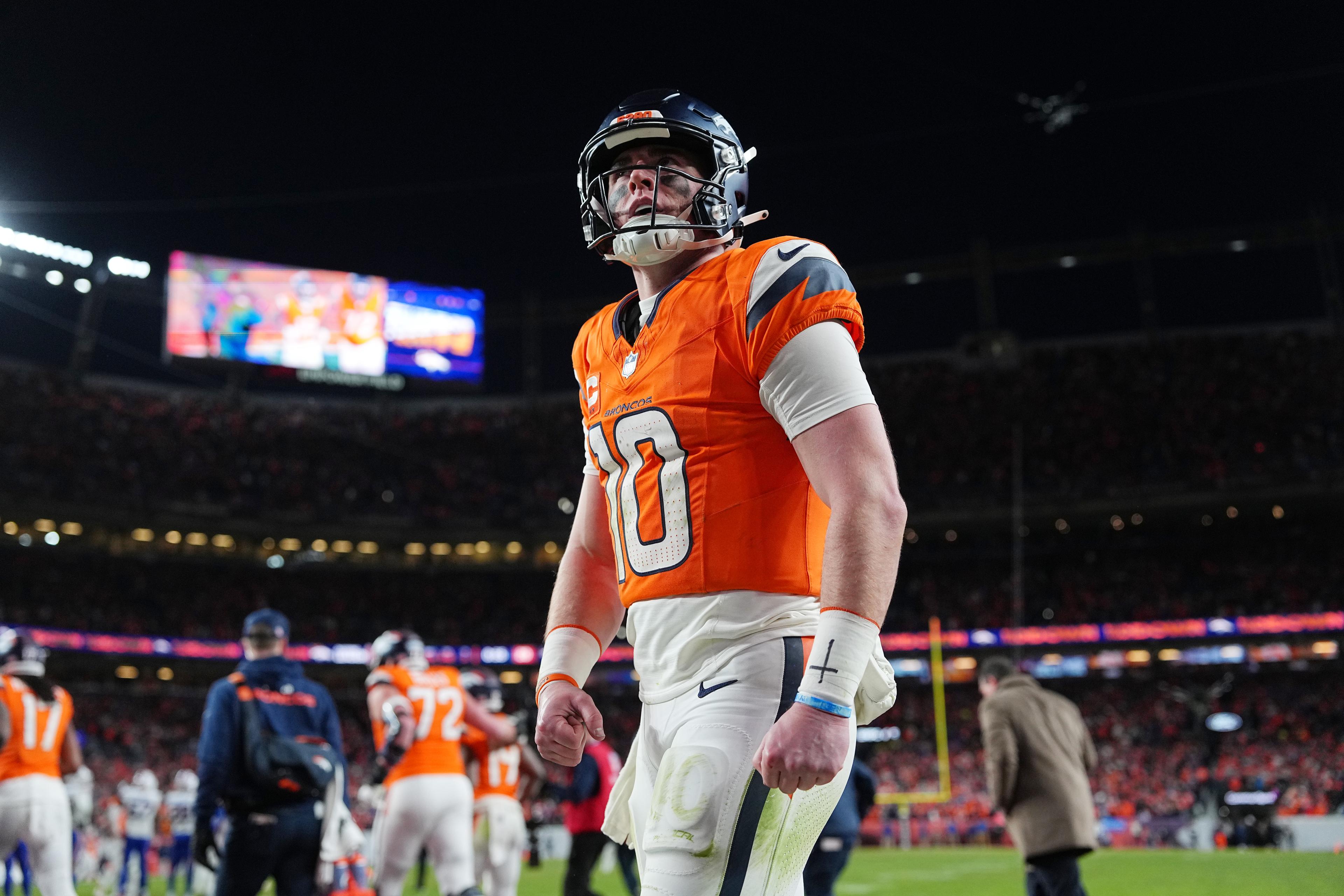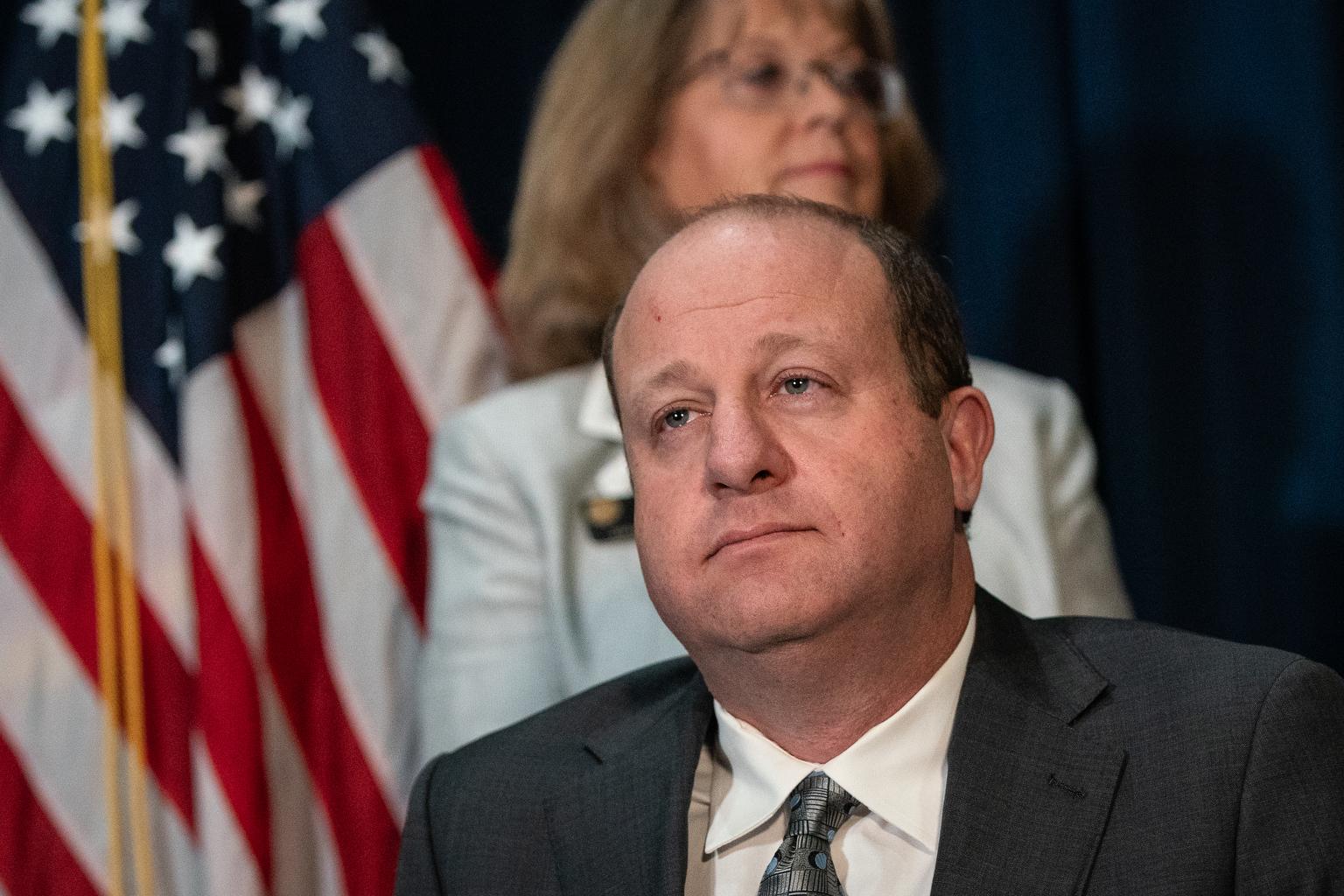
Governor Jared Polis said Congressional Republicans are to blame for estimated health insurance costs that might rise by as much as 28 percent for individuals in 2026. That’s according to figures released Wednesday by the state.
“These increases are directly a result of the big bad bill, the beautiful bill, whatever you call it,” Polis told Colorado Matters senior host Ryan Warner. “It's not just Colorado, but across the country, rates are going to go up. They cut the tax credits for the exchange, they cut the support for healthcare. They added requirements."
“I'm hoping that going up to 28 percent, Colorado will be less than some of our neighboring states, but it's brutal what they did to healthcare in that bill.”
In a wide-ranging conversation, the Governor also addressed the state’s plans for this wildfire season; Polis said that while he hopes the federal government will continue to reimburse Colorado for expenses from fighting fires (an estimated 75 percent, according to Polis), he added, “We need to be able to control our own destiny and have the resources to do it.”
This interview has been edited for length and clarity.
Ryan Warner: Your release blames chaos from congressional Republicans. Any scapegoating going on there?
Gov. Jared Polis: Well, no. I mean, these increases are directly a result of the big bad bill, the beautiful bill, whatever you call it. The bill is now law. So it's the law, and it's not just Colorado, but across the country, rates are going to go up. They cut the tax credits for the exchange. They cut the support for healthcare. They added requirements, and so I'm hoping that going up to 28 percent, Colorado will be less than some of our neighboring states, but it's brutal what they did to healthcare in that bill. That's just dollars and cents. It's less money coming in. It's a federal government cutting back hundreds of millions of dollars and Coloradans and people in other states having to pay more for healthcare.
Warner: Apparently the insurers are estimating that a hundred thousand Coloradans may lose coverage. Where does that number come from?
Gov. Polis: Well, there's two things. One is with healthcare costing more, there's an assumption that some people who have healthcare today simply won't be able to pay 28 percent more and will become uninsured. The second is people that will actually lose the Medicaid coverage that they have today. That's for low income Coloradans. So I think that estimate you have, there is both of those together. I would add the 28 percent increase, that's a hard number. That's from the information they filed. I mean, I'm certainly going to do what we can to mitigate at the state level, but it's not a lot. It's mostly a federal program. I hope we can put together something to shave a little bit off of that, but it's 28 percent. The number of people losing, it’s more of a projection. It honestly depends on people's decisions about whether they can pay 28 percent more or whether Medicaid folks are going to go through eligibility assessment twice a year, which they're going to have to soon under the big bad bill or big bold bill or beautiful bill or whatever it is.
Warner: Now to be clear, healthcare costs have been increasing year over year for a long time. So what's the context here in your view?
Gov. Polis: Yeah, when average statewide increases were five and a half percent, nine percent one year, one percent one year in 2022, so they range between one and ten percent over my time as governor with an average of about five. Of course, that's a problem and we're doing everything we can to fight that, but nothing like this. This is a direct result, dollar for dollar of the loss of the federal subsidies that leads to the 28 percent. It wouldn't be anything like that if Congress had stepped up and continued them.
Warner: Anything you can do? You said that you'll try to bring them down. What tools are at your disposal?
Gov. Polis: Yeah, not a lot. I mean, it's fundamentally federally funded. So I mean, look, I think we're going to, from a regulatory perspective, push the insurance companies hard. We're always looking at ways to shore up the exchange, but I want people who get their returns to the exchange to be ready for the 28 percent increase. If there's some way we can shave five, six percent off of it, that would be a huge win, but it still means that your rates are going up 22 percent because of this big bill in Congress. So I just want people to be ready. I don't think it'll be worse than 28 percent but I also say I don't think it'll be much better if we can make it better at all, we're certainly going to try.
Warner: Is there anything in the so-called One Big Beautiful Bill Act that would lead you to call a special session to bring lawmakers back to deal with its effects?
Gov. Polis: Well, first of all, I'm going to answer that directly, but I want to be even handed here and say that there are some people that might benefit from the tax cut in the big bill, and that might even be more than their increased health insurance costs, primarily tipped wages up to $25,000 won't be taxed for most people, overtime, up to $12,500 a year won't be taxed. So if you have tipped wages, overtime, some combination of those, you might net out better even with the 28 percent health increase. But that's probably a small percentage of the population. Ryan; most people don't have tip wages or much overtime and will have to pay the increase. So I mean, I just want to be clear and be even handed. There might be a few people that benefit from those tax revisions and net save money.
As for whether there needs to be a special section, and what that means is the legislature coming back before January to do items, we are going through this and figuring out which things, if any, have to be done before next year or if the state benefits significantly from doing earlier rather than later. I think there is a basket of those. Ryan, our full assessment isn't done, but if there are some things we need to do before the end of the federal fiscal year, which is September 30th, then folks might need to come back a little bit earlier to get those done because we don't want to wait for January for the sake of waiting for January. On things that can wait, we're happy to, but if there's some benefit to Coloradans from acting earlier, we should bring the legislature back and do it.
Warner: On Monday, you asked the state's labor, agriculture and trade departments to crunch data related to President Trump's tariffs scheduled to go into effect August 1st. Colorado's biggest trading partners are affected: Canada and Mexico. Is this busy work for bureaucrats or will there be practical benefits for business?
Gov. Polis: I think this is really important work because you probably know I've been shouting until I'm blue in the face, how harmful these tariffs are and damaging, and it's because I've heard anecdotally just the other day at a round table, one small business already cut from 11 people down to five because of the tariffs. Another retailer is raising prices already because of the tariffs and those and more are ahead. But it's one thing to hear the stories, Ryan. It's another to have some data behind it, some analytics behind it, and that's what this executive order is about. What are those impacts? How's it affecting pricing? How is it affecting jobs and how can we focus on protecting our key institutions while maintaining close friendships with our allies? So we're assessing that impact.
We're trying to be creative and we're on the legal front challenging the tariffs, but we're also finding ways that we can highlight the damage of these tariffs to try to get the president to reverse course.
Warner: So 45 days to gather data on the burdens, a hundred days for various aspects of the state to submit plans to mitigate those burdens. I mean, is that fast enough given how kinetic things are? And it's not like the state has money to throw at this. The state budget is tight.
Gov. Polis: We're moving as fast as we can, Ryan. So the state is a big thing. We do a lot and tariffs affect a lot of the work we do. I mean, think of something like road construction and where we're sourcing different materials. Think of the work around our universities that are having trouble with some of their faculty and students internationally. And again, it's reputational, the loss in tourism. So I mean, there's just so many things that are affecting our state. It's not like it's one sector. So that's why, yeah, I think it's ambitious to do it in this timeframe, but we're committed to making sure we have data to back up this overwhelmingly powerful stories and anecdotes that show the jobs that are being lost, that are threatened and the increased prices consumers are going to be forced to pay because of Trump's tax increase,
Warner: Multiple wildfires across Colorado. Word on the one in the Black Canyon of the Gunnison is that it'll take a monsoon storm system to end it. Governor, are federal cuts at all affecting the response to these blazes?
Gov. Polis: Well, we're currently in a one state-declared emergency. I'm getting updated daily, sometimes multiple times a day on wildfires. This is wildfire season. Of course in Colorado, wildfire season is truly year-round at this point. The Marshall Fire was the most destructive fire in our history occurring in December. But we are of course continuing on the wildfire mitigation front. We have strong relationships with our federal partners. Do we know exactly if what we're going to get is what we need? We have a lot more uncertainty than we've had before, but I can say we have a very strong relationship with our federal partners and we're working with them hand in glove to try to tackle these fires.
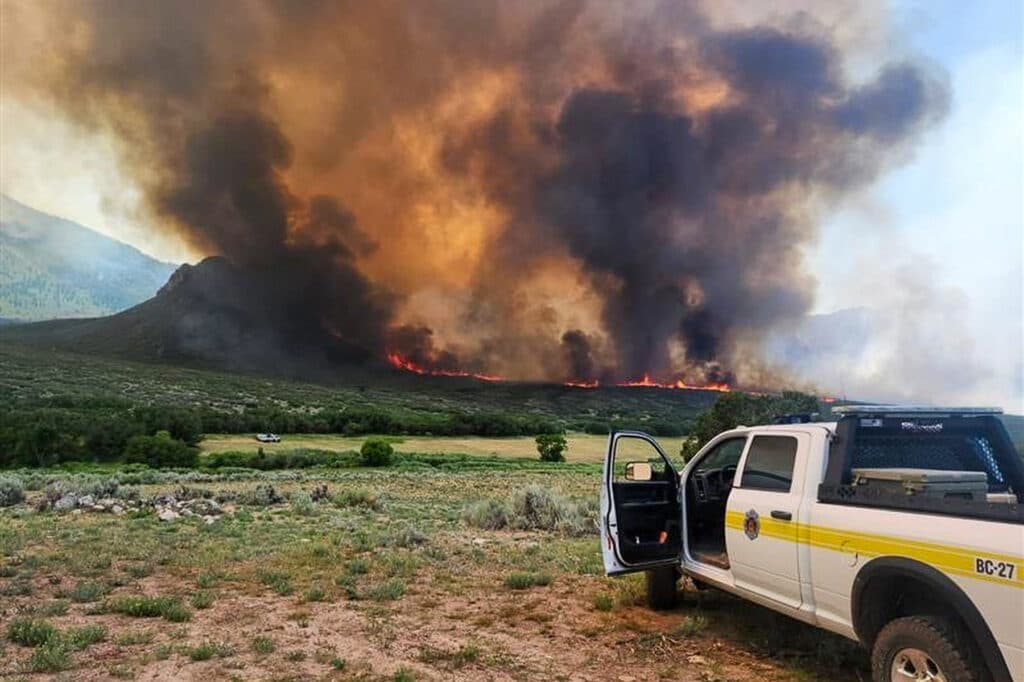
Warner: So my sense there from your answer is that you are currently getting the resources you need from the feds on this.
Gov. Polis: Well, on something like the state disaster as an example, we often don't know for a several month period of time, exactly what will be reimbursed by FEMA and what isn't. So this is how it works. States, when there's an emergency and it goes beyond a county level, fire, states start spending money, and we do that because it's the right thing to do. We've got to protect our residents from fires. Historically, we've gotten usually 75 percent back from the feds on that. There's been times of higher matches. I think there was a higher match for Marshall, if I recall. And we assume and we hope that that's what we're going to get. Do we know that? No. So if the federal government doesn't match in that disaster response, then state taxpayers are on the hook for that. But we are hopeful, again, meeting all the criteria of an emergency, we're hopeful the federal government will live up to their commitments.
Warner: So that's a question of reimbursements. And as for people power, those currently fighting the fires, we know that the federal government plays a role in assisting states there. That seems to be meeting muster.
Gov. Polis: Again, we just have one fire currently that is a state fire. The rest are being handled by counties. So the way it works is the county, the sheriff, that's the first emergency commander on a fire, they often request help. They get it from other counties, from other cities. When it goes beyond the capabilities of a county, they say, “State, you come in and run it.” We're currently doing that for one fire. We are getting the resources we need from our fire departments, from our rural fire districts, from our volunteer firefighters or from our wildland firefighters across the state. We hope we're not in a worse situation in the future. We have more aerial resources than ever before, two Type 2 helicopters, we have fixed wing, we have an exclusive use contract and a large air tanker. So we have very thoughtfully over the last four years of my tenure as governor upped our preparedness as a state on fire. Not necessarily because we knew that President Trump was going to tear FEMA apart. We didn't know that, but we knew that there are more frequent fires across the West and we were worried about competing for federal resources or shared resources if there was a crisis in California, New Mexico, and boom, there was one in Colorado. We need to be able to control our own destiny and have the resources to do it.
Warner: I want to talk just briefly about immigration enforcement. There’s so much news every day that last month feels like an eon ago, but indeed last month you said you wanted to comply with a subpoena for information about adults caring for immigrant children, and that compliance came as a surprise to many. So I wonder if you might explain your thinking about it.
Gov. Polis: Two things on that. One is the state law gives broad authority for us to cooperate on criminal investigations with the Feds. And the language of this request was to investigate child exploitation and child trafficking, which have been documented to occur. And again, these are minors that have been placed with people other than their parents. So it's a high risk for abuse. We absolutely should care about child trafficking and whether they're being exploited. And the federal government does have responsibility for the welfare of these children. So to further the criminal investigation, of course we cooperated. It's now being litigated whether we can. We always hope that these requests are more clear, whether they're criminal or civil. But certainly in my opinion, again, looking at child exploitation or child trafficking, this is clearly a criminal investigation.
Warner: Do you trust the federal government to have used that information on that limited basis? The notion was that there were door knocks that may have been outside that scope.
Gov. Polis: Well, again, I certainly don't agree with everything that ICE is doing across the country if you're asking me that. But if you're asking me, should the investigative piece, the Homeland HSI, which is sort of the corresponding piece to the FBI located in the Department of Homeland Security, should they make sure children aren't being exploited or trafficked? Of course. And the state should help however we can. I mean no question. That doesn't mean in any way. I agree with various ICE activities and frankly, I welcome more transparency about exactly what ICE is doing here. We read about it just like you do, Ryan. They don't consult with us. They don't tell us. We hear about it the same way. And I've called several times for more transparency from the Feds on even what they're doing with regard to immigration enforcement in our state.
Warner: You are soliciting public input on a walkway that you hope to build near the state capitol. Critics include historic preservationists and lawmakers who oversee the Statehouse grounds. Governor, are you willing to scuttle that project if the feedback is mostly negative?
Gov. Polis: Well, first of all, I'm hoping for two things and one, we're already getting Ryan, and that's a real discussion about what Colorado should do and how we should observe our 150th anniversary. So I'm really glad that perhaps this walkway specifically as a catalyst is saying, “Hey, let's talk about this.” The second piece is what do people want and do people want to see a walkway? Do they want to see the state celebrating our 150th anniversary in a different way? How do people feel about the fact that it's our country's 250th birthday and our state's 150th? The survey’s at CO150walkway.com. And I'm very hopeful that we'll get them clear marching orders out of this about whether we should proceed with the walkway or other projects and how Coloradans want to celebrate our 150th birthday.
Warner: Okay, so this will guide you.
Gov. Polis: Yeah, look, I'm hoping that it's clear, right? I'm hoping it's like 70-30 one way or the other. I mean, I don't know exactly if it's 49 and a half to 50 and a half, what we can take from that? We'll have to look at what people say regionally. I'm hoping there's a clear thing, like yeah, there’s passion about this and people want it, or there's passion about it and they don't want it, and they want something else, or they don't want to celebrate the holiday. I mean, look, I’ll be in the seat as governor during this very special year for Colorado. Do I want this to be some ownership of this anniversary from the people of our state and survey's a great way to do that, to get a clear sense from people about what they want.

